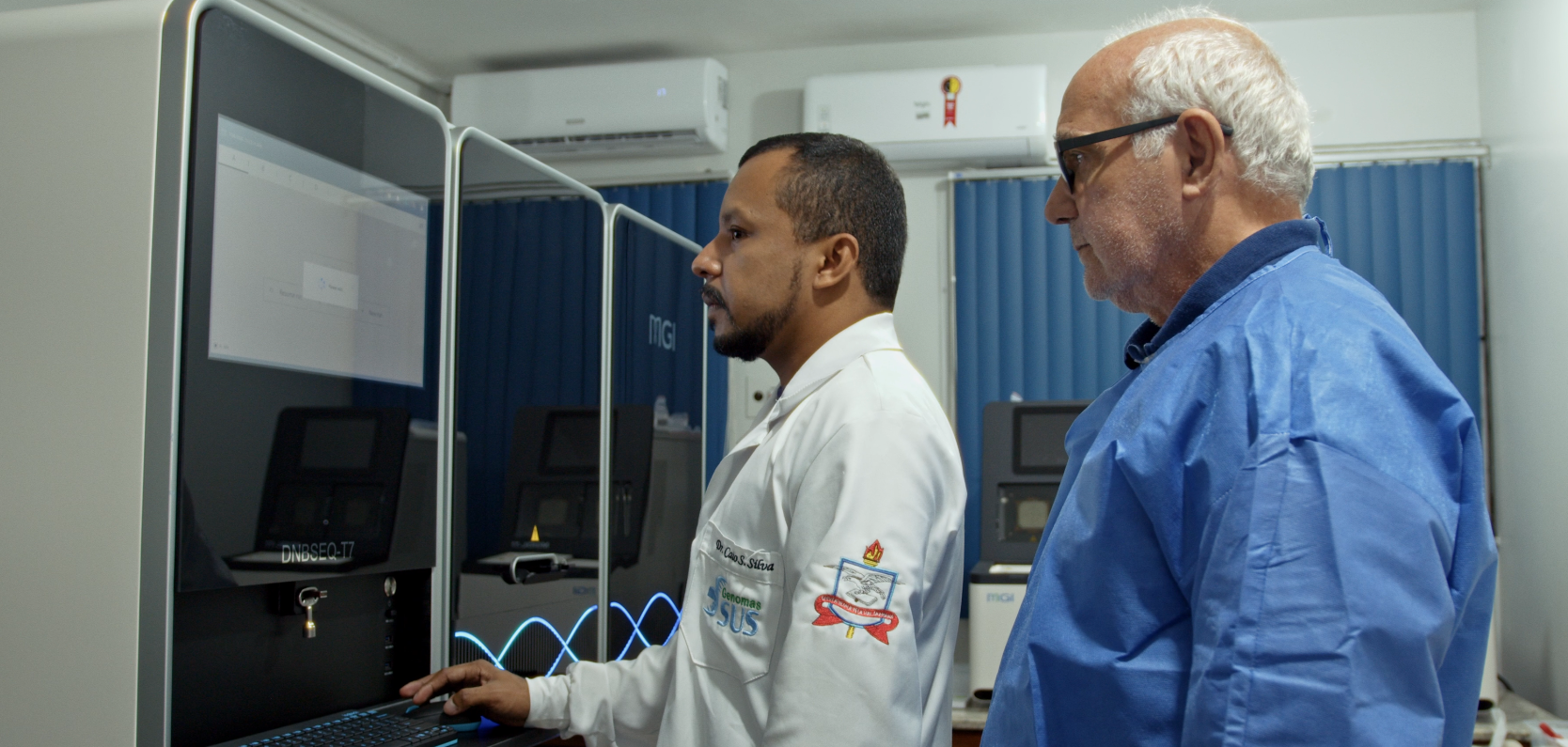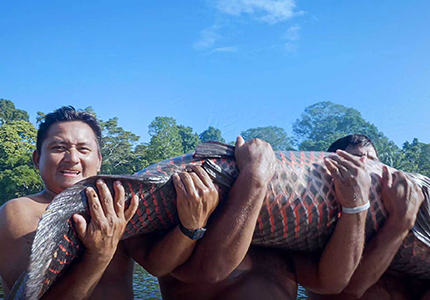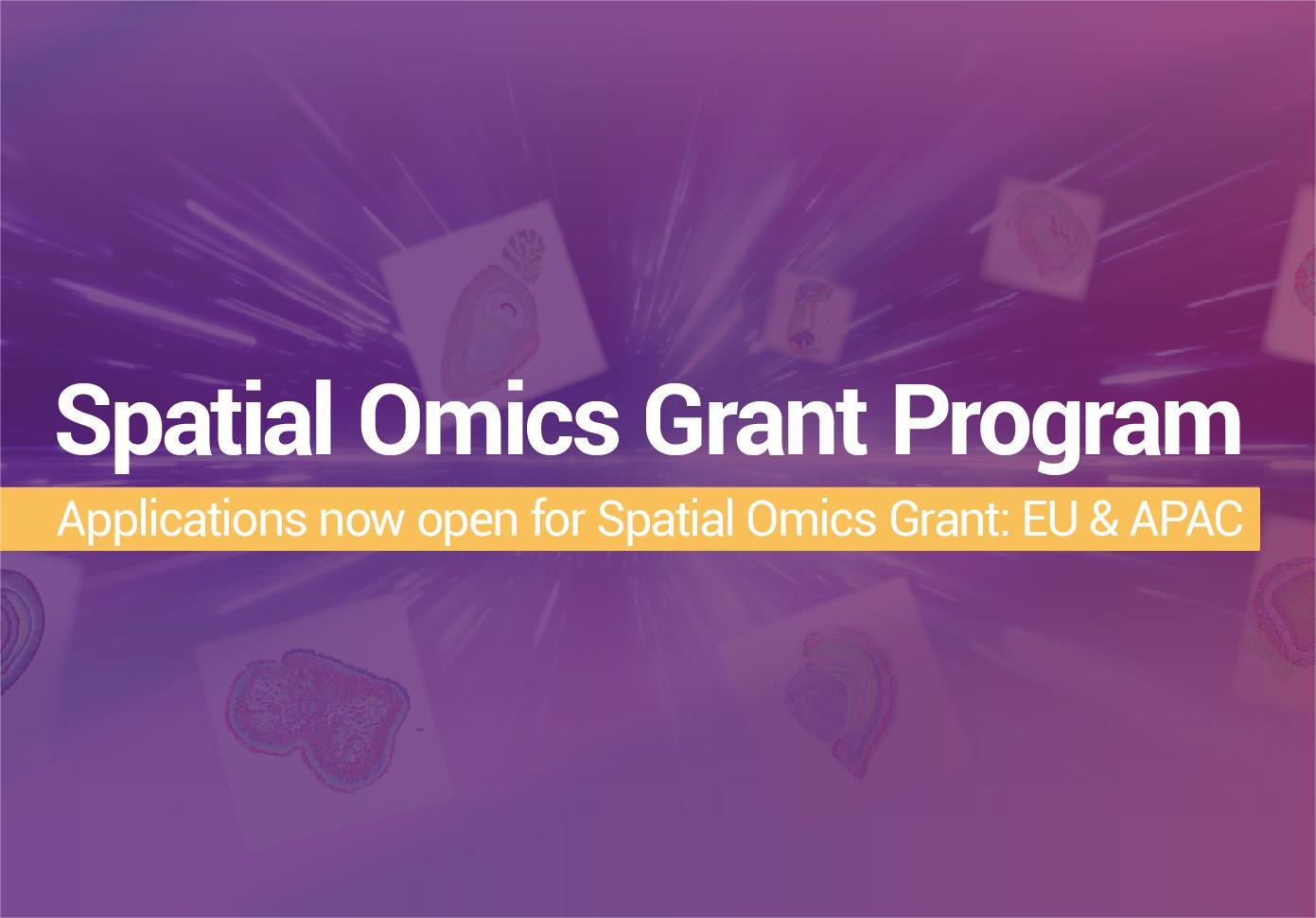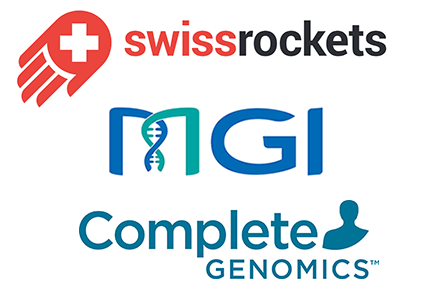The research, based on the genetic sequencing of the pirarucu and other species, aims to contribute to environmental preservation and generate knowledge for future studies
Belém, Brazil, 17 November 2025 — MGI Tech Co., Ltd. (“MGI”), a company dedicated to developing core tools and technologies that drive innovation in life sciences, has joined efforts with The Federal University of Pará (UFPA) to tackle biodiversity challenges in the Amazon rainforest using advanced sequencing technology. The pioneering research project based on the genetic sequencing of fish and other species may open a new path toward enhancing the preservation of Amazonian biodiversity.

(click here to watch the video: https://youtu.be/i8K_pHxMTeE)
The Amazon rainforest, home to an estimated 50% of the world's biodiversity, faces significant challenges. According to a study by the Instituto Tecnológico Vale (ITV), at least 83%¹ of Amazonian species must be preserved to maintain the region's ecological balance. However, a study² conducted in 81 Amazonian communities found that pirarucu populations were extinct in 19% of those areas, depleted (near extinction) in 57%, and overexploited in 17%. The loss of this biodiversity compromises the forest's fundamental role in maintaining the entire water cycle. The study highlights that the forest cover is responsible for regulating river flows and transferring massive volumes of water to the atmosphere, which directly sustains the aquatic habitats of species like the pirarucu.
The initial focus of the research is the pirarucu (Arapaima gigas), the largest freshwater fish in Amazon, which can weigh over 100 kilograms and is listed under the Convention on International Trade in Endangered Species of Wild Fauna and Flora (CITES)3.
The main goal of the research is to curb the advance of predatory pirarucu fishing in the Amazon rivers by encouraging captive breeding, driven by growing national and international demand.
The study was led by Professor Sidney Santos, from the Human and Medical Genetics Laboratory of UFPA’s Institute of Biological Sciences. The UFPA research involved the analysis of more than 100 fish and the complete sequencing of two pirarucu specimens. “For sustainable captive production, we needed to carry out two important steps. First, we facilitated reproduction through a specific hormone, GNRH. Once that stage was completed, through genetic sequencing, we had to demonstrate that the fish meat being sold and exported actually came from a particular breeding stock. To achieve this, we developed specific paternity tests to verify the product’s origin—whether it comes from a certain farm or from the wild,” explains Professor Santos.
The researcher emphasizes that captive pirarucu breeding will also benefit local communities in the long term. By mitigating overfishing, the population of naturally reproducing fish in rivers will increase, supporting both fishing activity and food security.
“This has already been proven with another iconic Amazonian fish, the tambaqui, which also began to be successfully bred in captivity,” he notes. “Most importantly, since DNA is universal, this model can be applied to all Amazonian species, including the filhote, which, like the pirarucu, can weigh over 100 kilograms and faces overfishing, as well as to some turtle species,” he adds. The study also extends to other native species, such as the filhote (Brachyplatystoma filamentosum) and Amazonian turtles (Podocnemis expansa).
New Pathways from Genomics
“There is a vast difference between what is observable to the naked eye and the information base that sequencing can generate. I would say that sequencing is the foundation of all the information you can obtain,” states Professor Santos. Advanced genetic sequencing provides a level of detail, speed, and scale that traditional research methods cannot match. While conventional techniques might analyze a few genetic markers, high-throughput sequencing generates a comprehensive database of an organism's entire genome. This wealth of information is crucial for developing highly accurate tools, such as the paternity tests used in this project, and for understanding the genetic diversity essential for robust conservation and sustainable breeding programs.
This year, the university received the DNBSEQ-T7 genetic sequencer — the only device with this technology available in the public sector in the Amazon region. It is a high-throughput DNA sequencer known for its speed, performance, flexibility, and cost efficiency.

In this research, the DNBSEQ-T7 was used to perform the whole-genome sequencing of the pirarucu specimens. The resulting data provided the detailed genetic foundation needed to support on GNRH research and to identify unique markers for the development of the specific paternity tests, enabling precise tracking of the fish's origin. “All data produced by the equipment will be shared with researchers from partner universities across the Brazilian Amazon, fostering scientific advancement and the development of new applications. MGI is an important partner in the research groups involved,” says Professor Santos.
“We know much less than one percent of what the Amazon holds. Preservation is impossible without knowledge. To truly work on conservation, we must invest heavily in understanding the genetics of these species. What excites me most is preparing the environment for future generations, which means protecting the Amazon.”
“It is the first time our technology has been used for species linked to the country’s biodiversity—so crucial in the global context. It demonstrates how genomic technology can foster not only advances in health and agriculture but also environmental sustainability,” says Carlos Carpio, Head of MGI for Latin America.
The Global Impact of Amazonian Preservation
The health of the Amazon transcends Brazil's borders, directly impacting the planet's climate balance. The pirarucu, an iconic species threatened by overfishing, serves as a powerful case study for how science can drive sustainable solutions. With COP30 being held in Belém in 2025, the search for effective, data-driven conservation strategies becomes even more urgent. MGI is committed to supporting environmental sustainability through its technology, demonstrating that genomic innovation is an indispensable ally in protecting our shared natural heritage and transforming knowledge into effective action.
About MGI
MGI Tech Co., Ltd. (or its subsidiaries, together referred to as MGI) is committed to building core tools and technologies that drive innovation in life science. Our focus lies in research & development, manufacturing, and sales of instruments, reagents, and related products in the field of life science and biotechnology.
We provide real-time, multi-omics, and full spectrum of digital equipment and systems for precision medicine, agriculture, healthcare and various other industries. Founded in 2016, MGI has grown into a leader in life science, serving customers across six continents and has established research, manufacturing, training, and after-sales service facilities globally.
MGI stands out as one of the few companies capable of independently developing and mass-producing clinical-grade gene sequencers with varying throughput capacities, ranging from Gb to Tb levels. With unparalleled expertise, cutting-edge products, and a commitment to global impact, MGI continues to shape the trajectory of life sciences into the future.
Referencies:
¹ Tereza Cristina Giannini, Caroline Oliveira Andrino, Rafael Gomes Barbosa-Silva, José A. Bitencourt, Rafael C. Borges, Renata R. Brito, Rosane Cavalcante, Claudia P.W. Costa, Sidnei Dantas, Markus Gastauer, Vitor F. Gomes, Ulysses, M. Maia, Felipe Martello, Leonardo Miranda, Sâmia Nunes, Guilherme Oliveira, Amanda Paracampo, Paulo R. Pontes, Silvio Ramos, José E. Santos Jr, Jacobus Biesmeijer. Measuring the natural capital of Amazonian forests: A case study of the National Forest of Carajás, Brazil. https://doi.org/10.1016/j.ecoser.2025.101734
² “Understanding fishing-induced extinctions in the Amazon”. Available https://leandrocastello.org/wp-content/uploads/2017/11/2014-Castello-et-al-extinctions.pdf
3 Convention on International Trade in Endangered Species of Wild Fauna and Flora (CITES). Appendices I, II and III valid from 25 May 2024. https://cites.org/sites/default/files/eng/app/2024/E-Appendices-2024-05-25.pdf



 Sequencer Products: SEQ ALL
Sequencer Products: SEQ ALL















 Technologies
Technologies Applications
Applications Online Resources
Online Resources Data Bulletins
Data Bulletins Service & Support
Service & Support Global Programs
Global Programs Introduction
Introduction Newsroom
Newsroom Doing Business With Us
Doing Business With Us Creative Club
Creative Club













